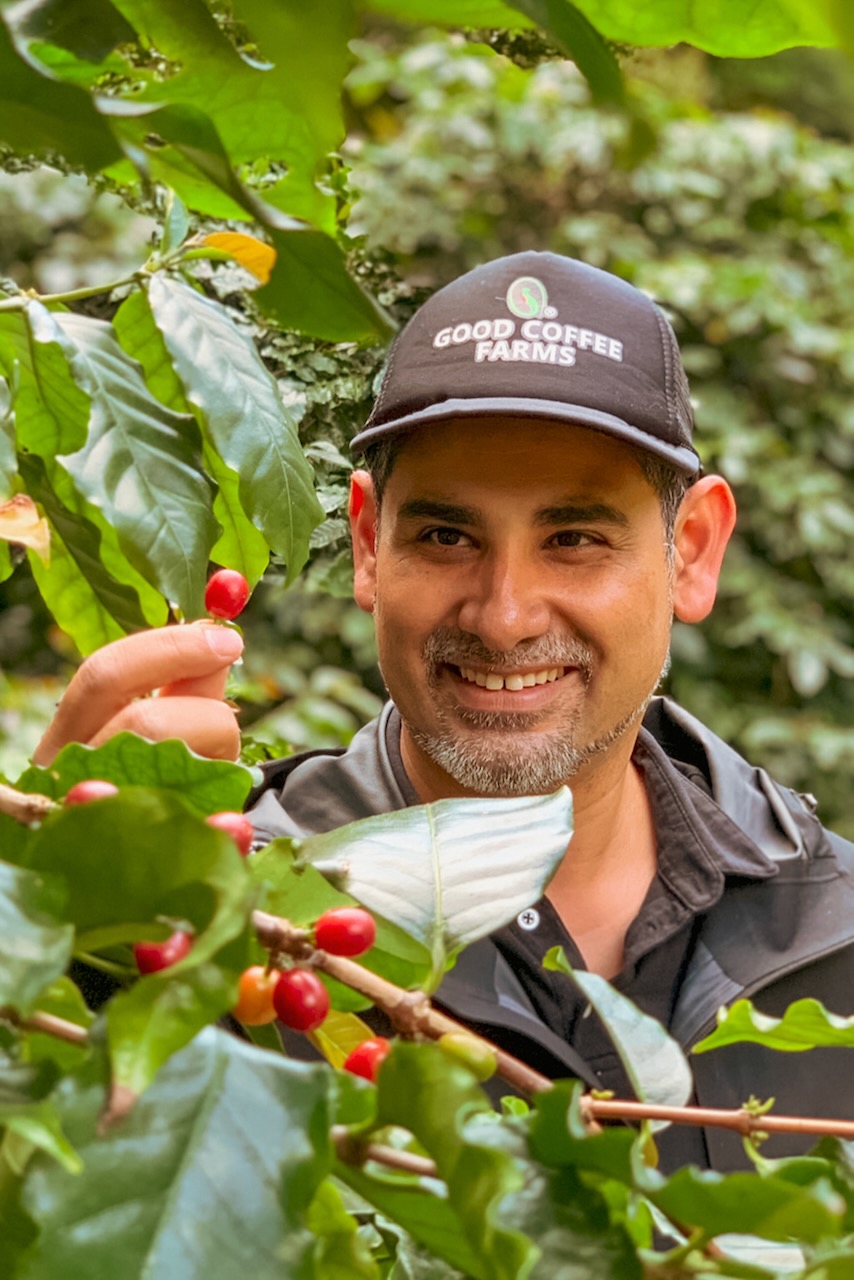
Leading Revolution with Real Solution
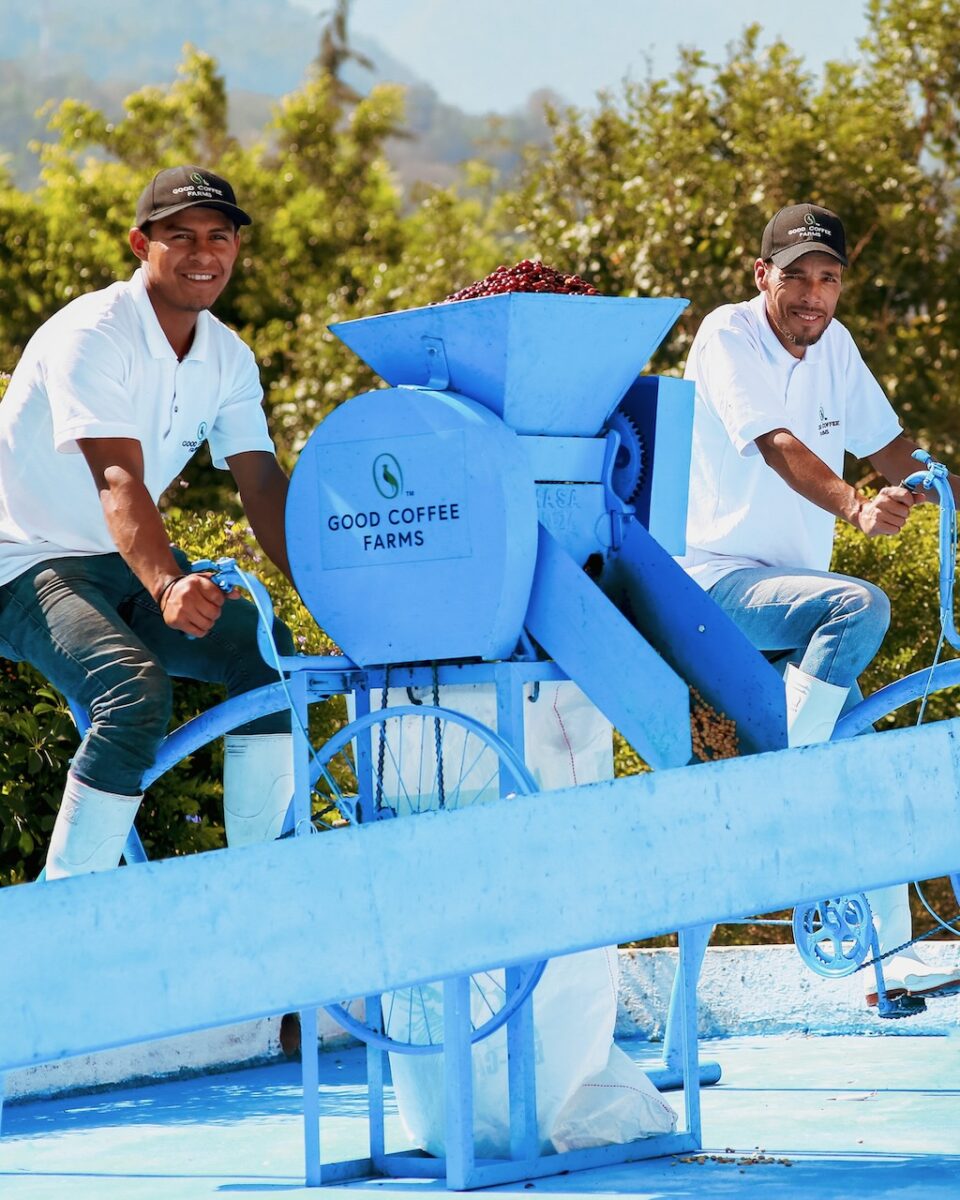
GOOD COFFEE FARMS processes coffee in a sustainable fashion, without water, electricity or fuel. The project, which started in Guatemala, has now expanded into El Salvador, Honduras and Colombia.
GOOD COFFEE FARMS was founded in 2017 by Carlos Melen, a native of Guatemala who has lived in Japan for around 20 years. Under the slogan, “Coffee Changing the World,” the project strives to once and for all resolve the coffee industry’s structural issue where small-scale producers are trapped in poverty.
More than 200 small-scale coffee farmers belong to GOOD COFFEE FARMS today. And Carlos is the mastermind behind a “revolution,” with its impact on small-holders so strong that some people call him “the Che Guevara of Coffee.” The driving force behind this project is dry bicycle pulpling, an original method where farmers pedal stationary bicycles to remove outer husk layers from coffee cherries and process parchment that later is converted into green beans, adding value to their harvest themselves. This innovation is exactly what has helped farmers earn about triple their previous income. Through an interview, we delved deeper into this project and Carlos’s life path.
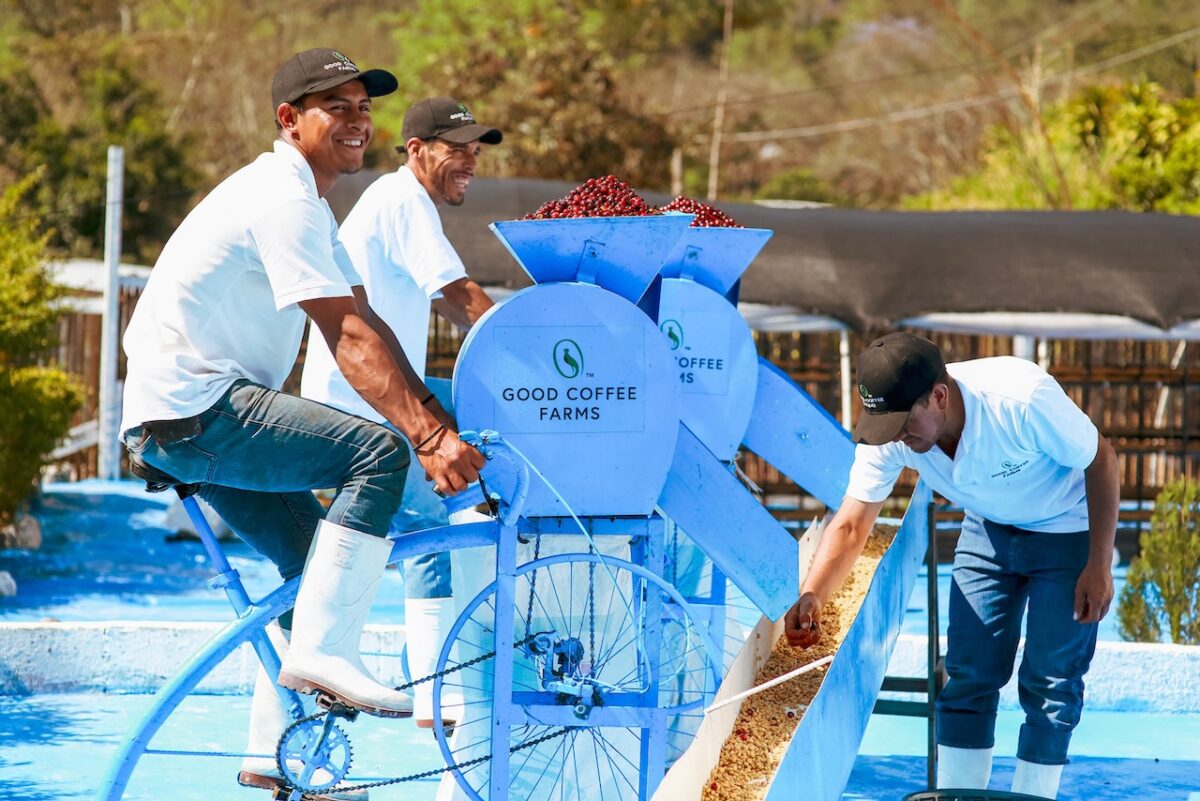
Finding cure for structural problem
GOOD COFFEE FARMS supplies its coffees to over 100 roasters across Japan. The group defines good coffee as something that’s sustainable for farmers, consumers and the Earth alike.
On one hand, this project creates opportunities for producers to process coffees with added value and generate a greater income, which helps them feel proud of their work. On the other hand, consumers get to drink a delicious coffee traceable to its origin while enjoying a story behind it. Also, the project leaves little environmental impact when producing coffee. The group strives toward these triple benefits, and at the center of it all is Carlos, leading with his innovative self-developed bicycle pulpers and strict process to keep traceability.
What is a coffee depulper? It is an industrial machine used at farms with processing structures to process harvested coffee cherries and remove the skin of the fruit. Normally, these machines require use of electricity and fuel. They also use water as a conveyor to move cherries through the entire production line. There are some smaller versions. But those, too, are still out of the purchasing power of small-holders.
With bicycle depulpers, farmers can remove the fruit of coffee cherries from green beans by pushing the pedals with their feet and without using any fuel, electricity or water.
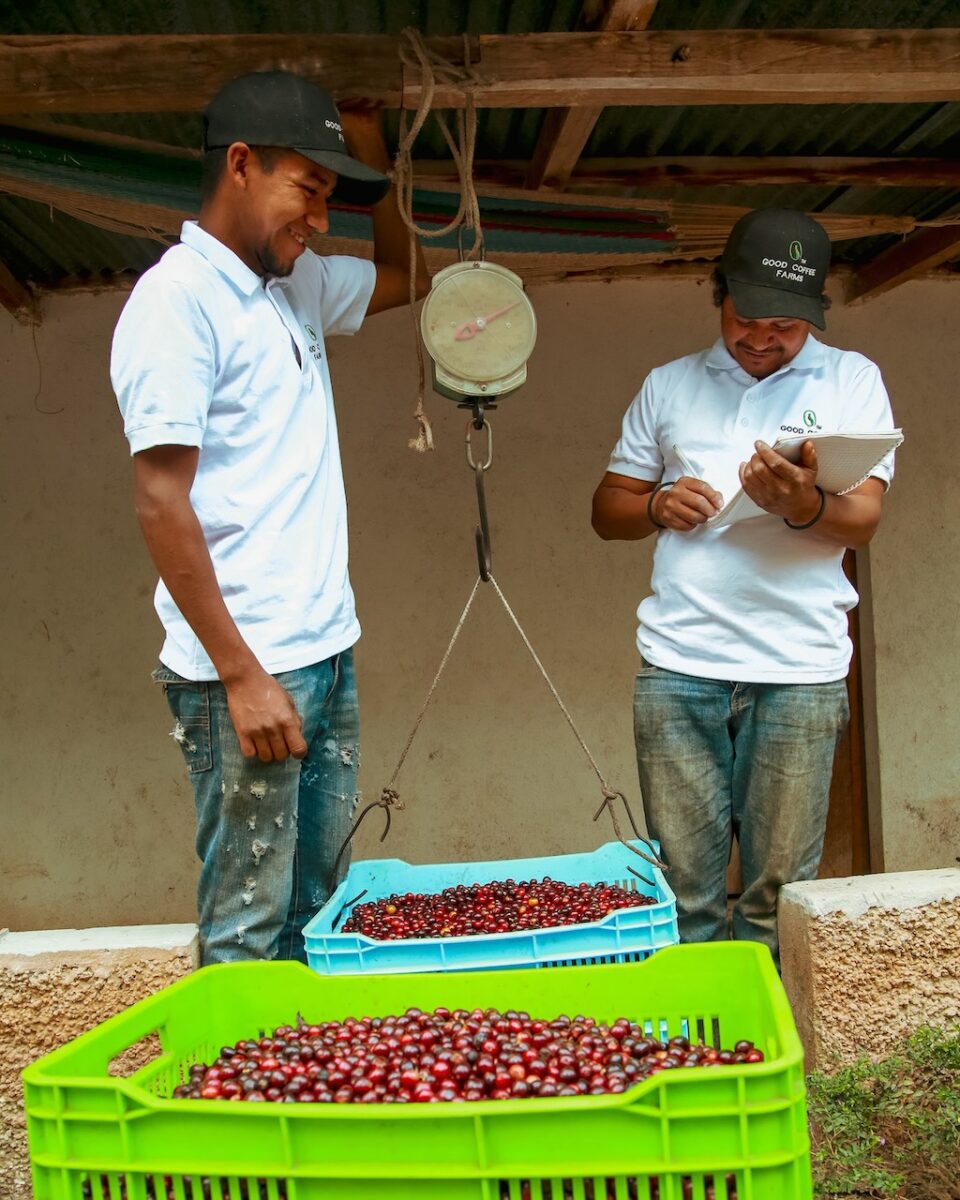
“These machines allow small-scale farmers to process coffee themselves and add value to it,” Carlos explains. “Most of them can’t afford or don’t even need conventional depulpers because they are too large and expensive. I have seen at some places some farmers process coffee by manual pulpers. They are eco-friendly, low-cost, and don’t require special skills. But they have the downside of low productivity. Our bicycle depulpers make up for these disadvantages at once.”
GOOD COFFEE FARMS decided to devise bicycle depulpers after Carlos witnessed deep-rooted poverty facing small-scale farmers.
“Back in the day, they’d have to sell their coffee as cherries to middlemen and large farms for a cheap price, no matter how high the quality was. And their cherries were mixed with others’ before being shipped off. It was hard to know where their coffee was exported or consumed. As a result, many farmers couldn’t feel proud of their work and ended up quitting coffee production.
Even if they brought parchment coffee to buyers in hopes of earning extra money, they could only sell it for a cheaper price than cherries. This is what happens not only in Guatemala but also in other places, keeping small-holders away from the supply chain and maintaining the industry’s status-quo. This is the structural problem that trapped farmers in poverty. Farmers had no chance because they had no access to equipment, production know-how or the market.”
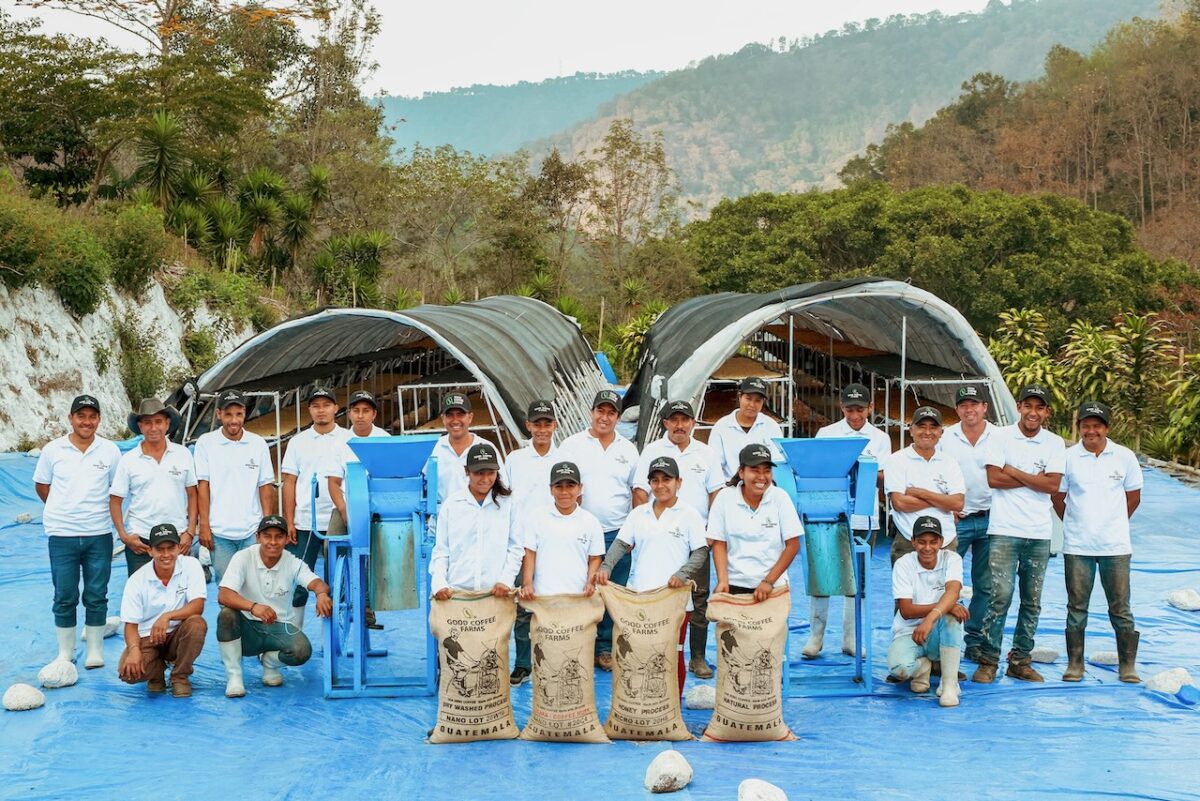
To bring change, Carlos cultivated relationships with Japanese clients and laid the groundwork for direct export from Guatemala. Thanks to this new sales channel that ensures sustainability and a fair reward for the hard work of farmers, members of GOOD COFFEE FARMS have seen a drastic shift in their lives.
“Some farmers told me, with tears in their eyes, that they couldn’t believe their coffees were being enjoyed and appreciated in Japan, and that it was more than they could ever have dreamed of. Children of farmers used to say they would never want to grow coffee because it wasn’t a glamorous job. But that changed completely after they saw pictures of their fathers on websites and in the media. Coffee has the power to change the world.”

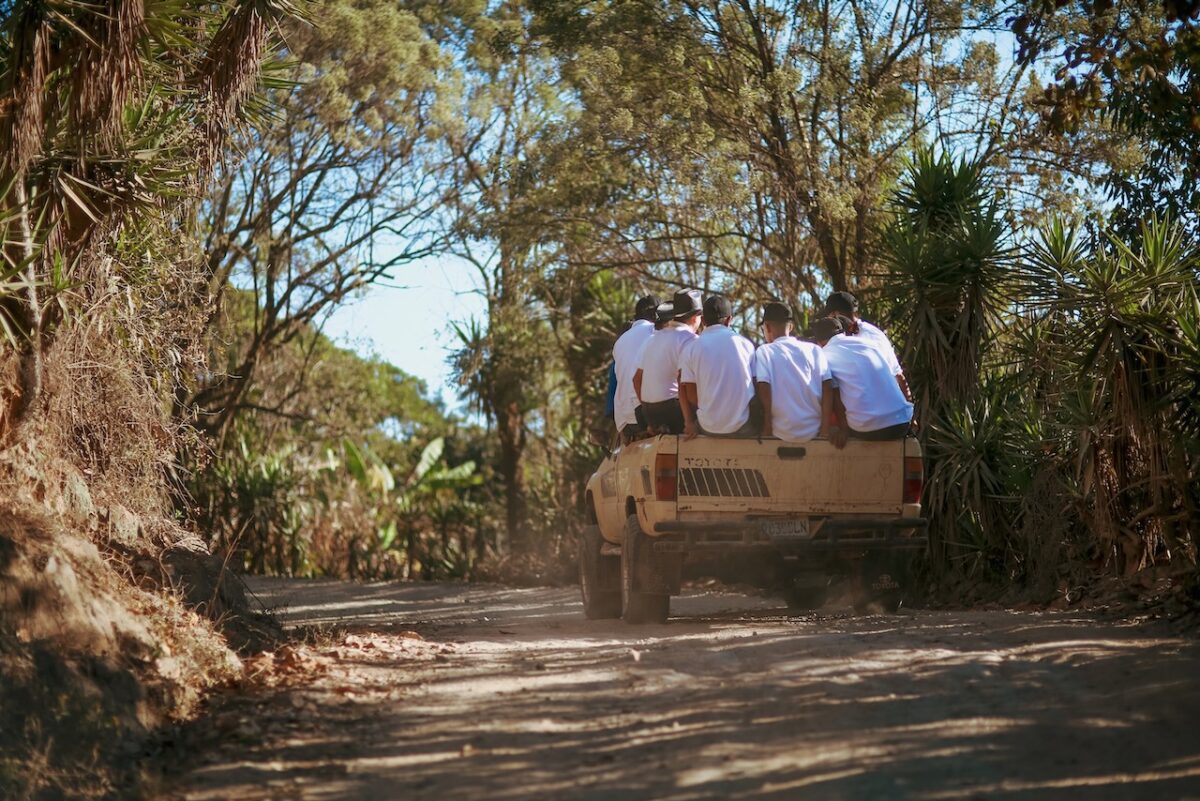
‘Something only I can do’
A revolutionary in the Guatemalan coffee industry, Carlos was born in 1981. That was during a civil war that lasted from 1960 until 1996. In the ravages of the fighting, the Melens had lost all necessities of life, including their house and jobs. Eventually, the family fled their hometown to Guatemala City right before Carlos was born.
Stripped of virtually everything they once owned, the family had to start over from nothing. Life was always destitute, until Carlos’s father landed a job at PepsiCo in 1996. For Carlos, memories as a poor child– of splitting a boiled egg into fourths between his brothers, of seeing his toes through holes in his shoes – are the very origin of his journey.
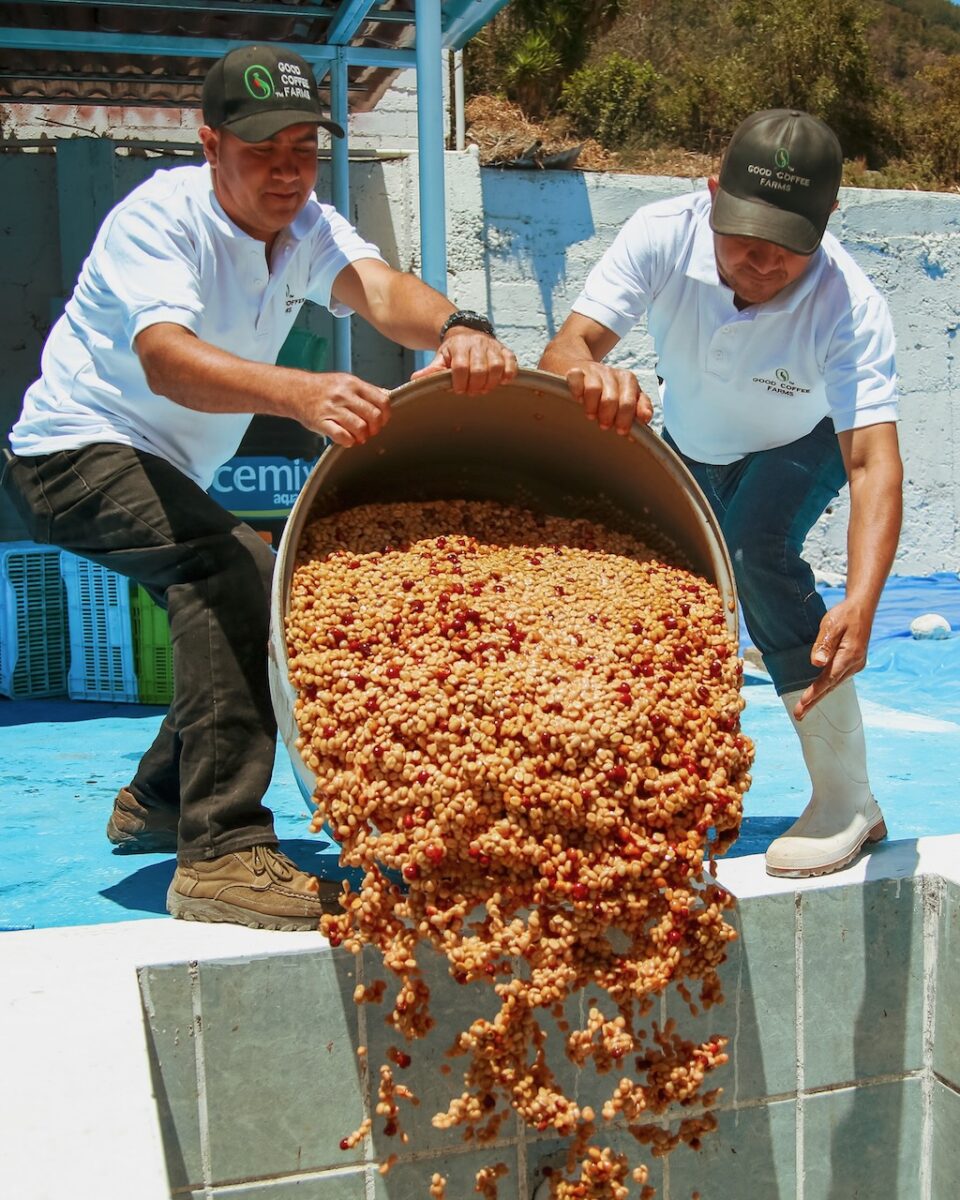
Back then, Guatemala City confronted a serious problem of its own, as the city was at the height of gang violence. Gang members abounded, fueled by an influx of deportees from the United States. Clashes between groups were frequent.
Carlos has one unforgettable memory. He lost a friend in front of his eyes after the friend was hit by a stray bullet in the crossfire of gang fighting. The two of them just happened to be at the scene.
“Gang groups were recruiting teenagers to expand themselves. I was also approached. Once they find you, you have no other choice: Either you say yes, or get beaten up. Many people around me got into trouble. I was lucky enough that I didn’t have to get involved in the worst situation.”
Growing up in a country with such extreme circumstances, hopes for a future were hard to find. Carlos’s first dream was to become a pilot. Thinking about flying far from home was an escape from reality.
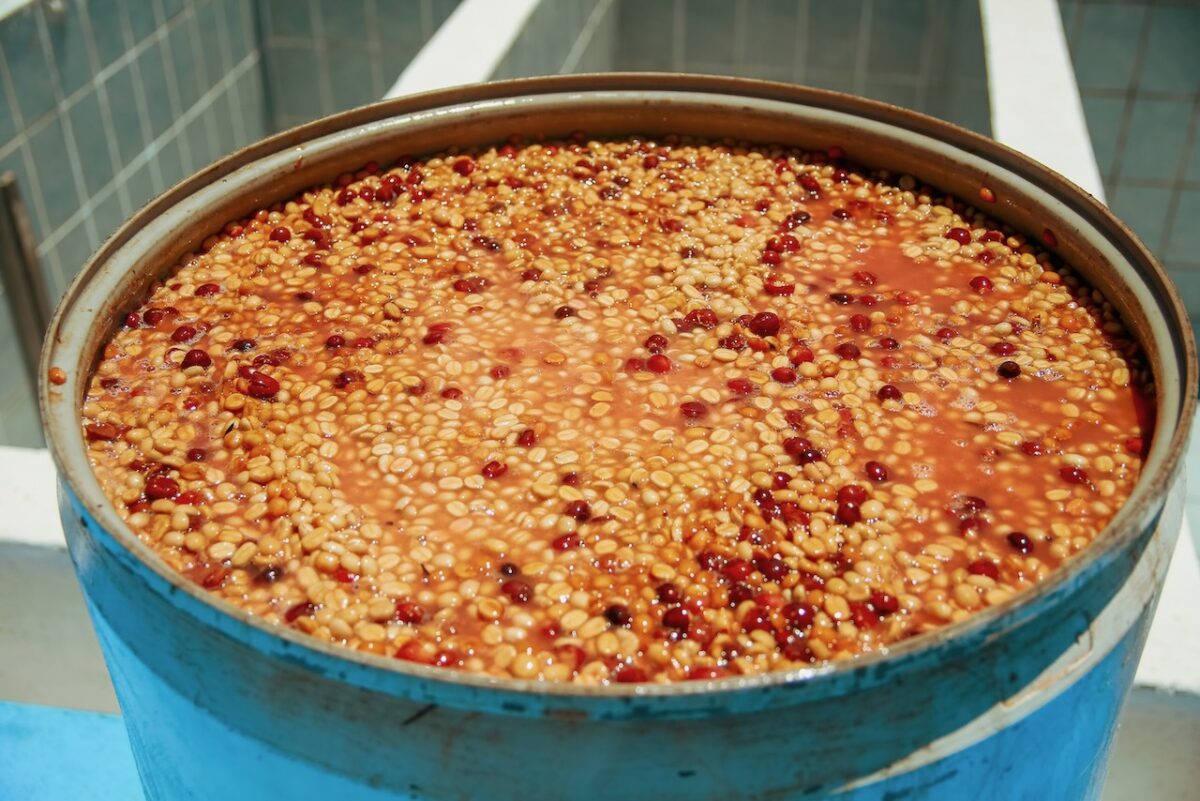
His family, meanwhile, didn’t have the means to give him an education to become a pilot. So Carlos took a year out after graduating from junior high school and worked to save up for tuition fees. But eventually, he gave up his dream and entered a technical school specialized in the tourism and hotel industries.
The wheels of Carlos’s fate started turning after his encounter with a Japanese woman. He met her when he was doing an internship at the Guatemala tourism association right before he finished his studies in technical school. The two became closer, and in the winter when Carlos was 18, he traveled to Japan to visit her house.
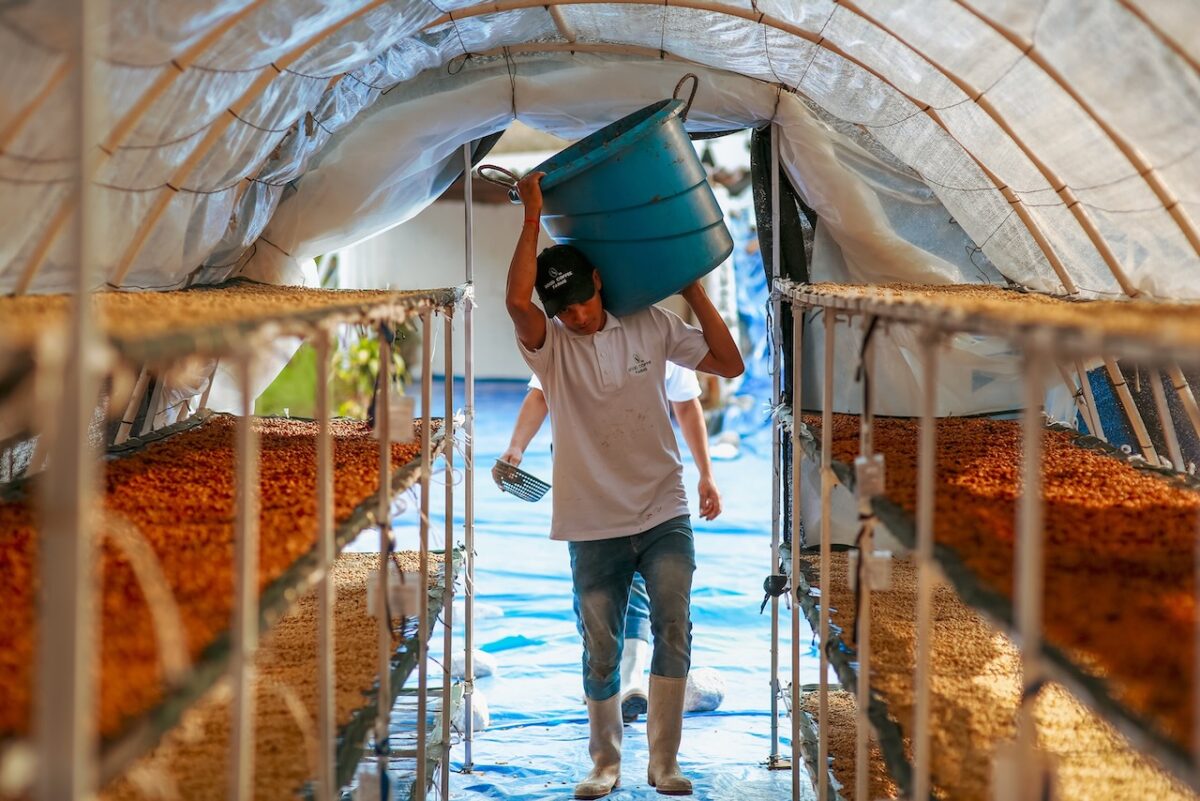
A swirl of emotions was coursing through Carlos when he landed in Japan.
“Everything I saw was shocking and amazing. I was particularly impressed with how safe Japan was. It was hard to believe the police didn’t have guns and all they carried was a stick.”
The peace and security of Japan was worlds apart from a life punctuated by echoes of gunfire. Falling in love with Japan at first sight, Carlos learned how to speak English and Japanese a year later and got to communicate with Japanese people. At 18 years old, it wasn’t hard for him to adapt to life in a foreign country. Meeting a partner and having a child in Japan added a new meaning to his life.
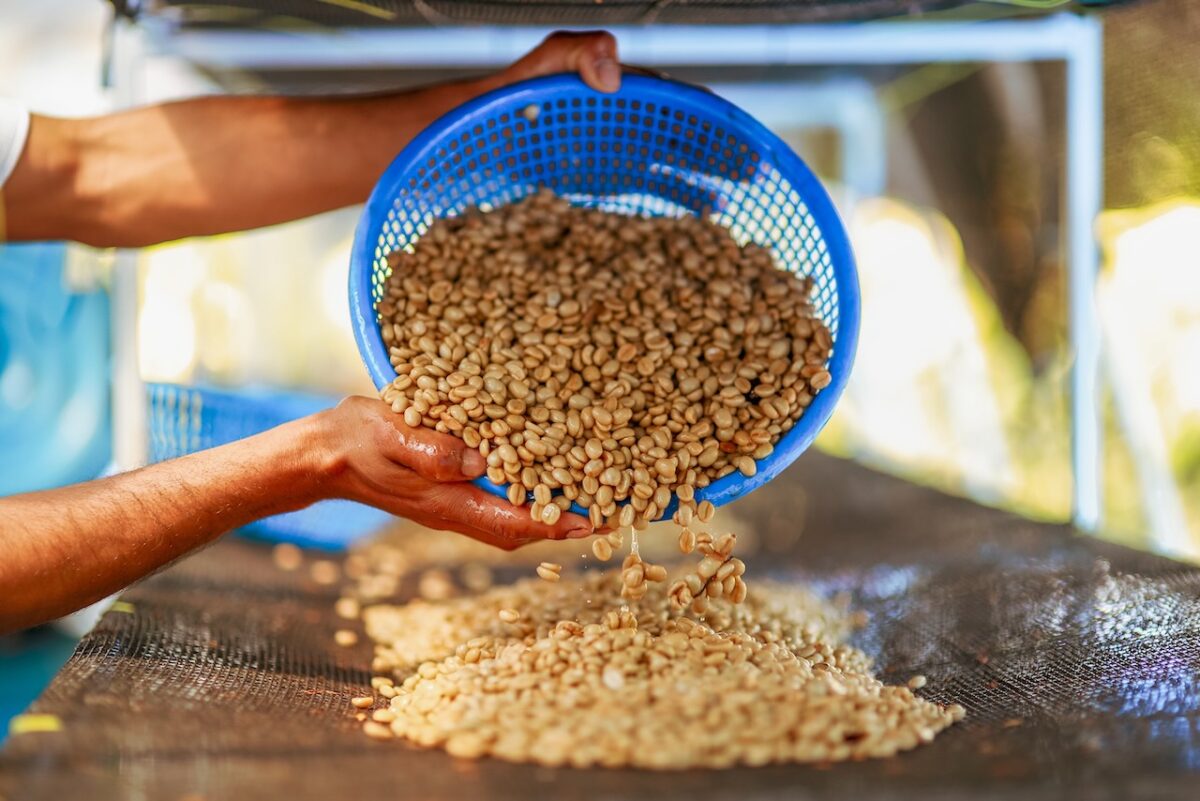
While feeling grateful for his life, Carlos started to itch for something more. Eventually, he decided to move to Tokyo to do something bigger, spurred on by the soul-searching question, “Why did this chance come to me?”
“Moving to another country and building a life there can’t be the goal of my life,” he thought to himself. “I knew there must be something I should do, something only I can do. And I felt coffee was the one thing I should do.”
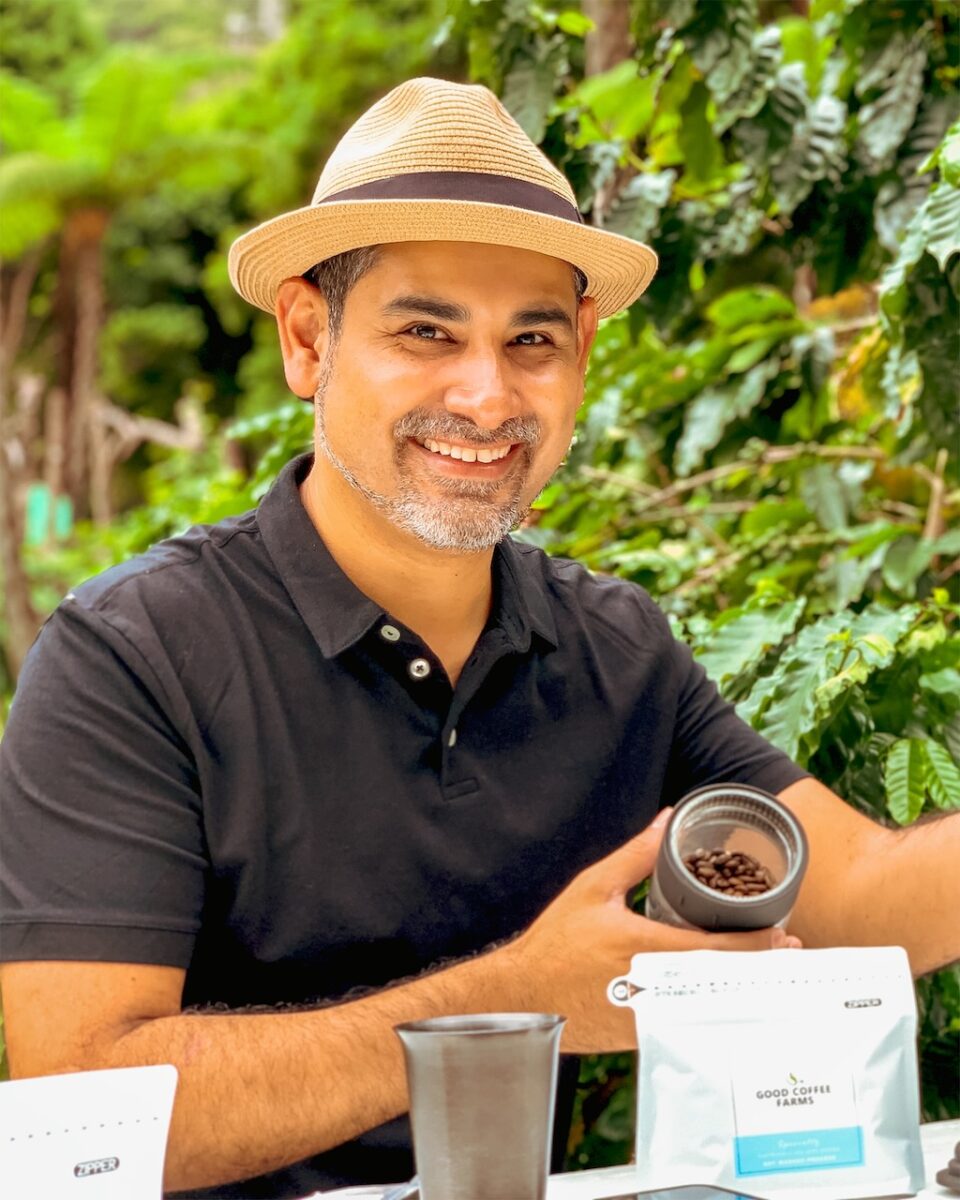
Dignifying the hard work of farmers
Coffee found its way into Carlos’s heart soon after he came to Japan. Whenever he told people he was from Guatemala, everyone responded with, “It’s a coffee country, isn’t it? Guatemalan coffee is very delicious.”
He figured that with coffee, he might be able to best express the value of being a Guatemalan. A faint sense of conviction grew within Carlos. But he was still too young to act on it.
Later on, after Carlos learned about trade, he launched high-end coffee brand DARKS COFFEE in 2011 to sell directly sourced beans in Japan.
Helped by the quality of green coffee, DARKS COFFEE soon grew popular among Japanese customers. Many of them were conscious consumers, so they peppered Carlos with questions like whether his coffee was fair-trade certified and how much coffee pickers earned.
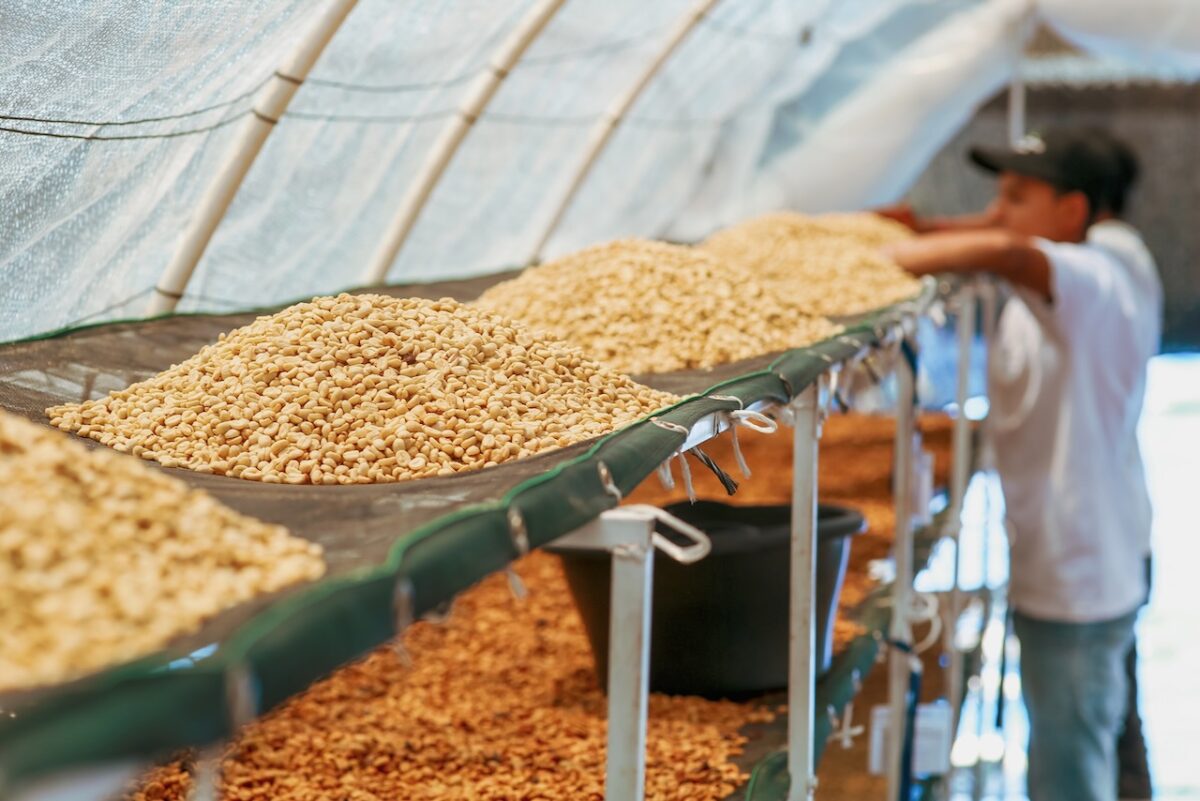
But Carlos, working downstream of the coffee industry, didn’t know much about what was going on further up the supply chain. So he called Japanese suppliers and asked them questions on his clients’ behalf. But all he received were vague answers. Skeptical, he made calls straight to coffee farms. That’s when he felt the need to go there and see for himself.
“The reality I saw at farms in Guatemala was worse than I imagined. Farmers were struggling in extreme poverty. Meanwhile in Japan, their coffee was being sold for a premium. What we call greenwashing was going on, where nice words like ‘fair trade’ and ‘organic’ were thrown around while farmers received nothing in return. I couldn’t accept how unfair it was.”

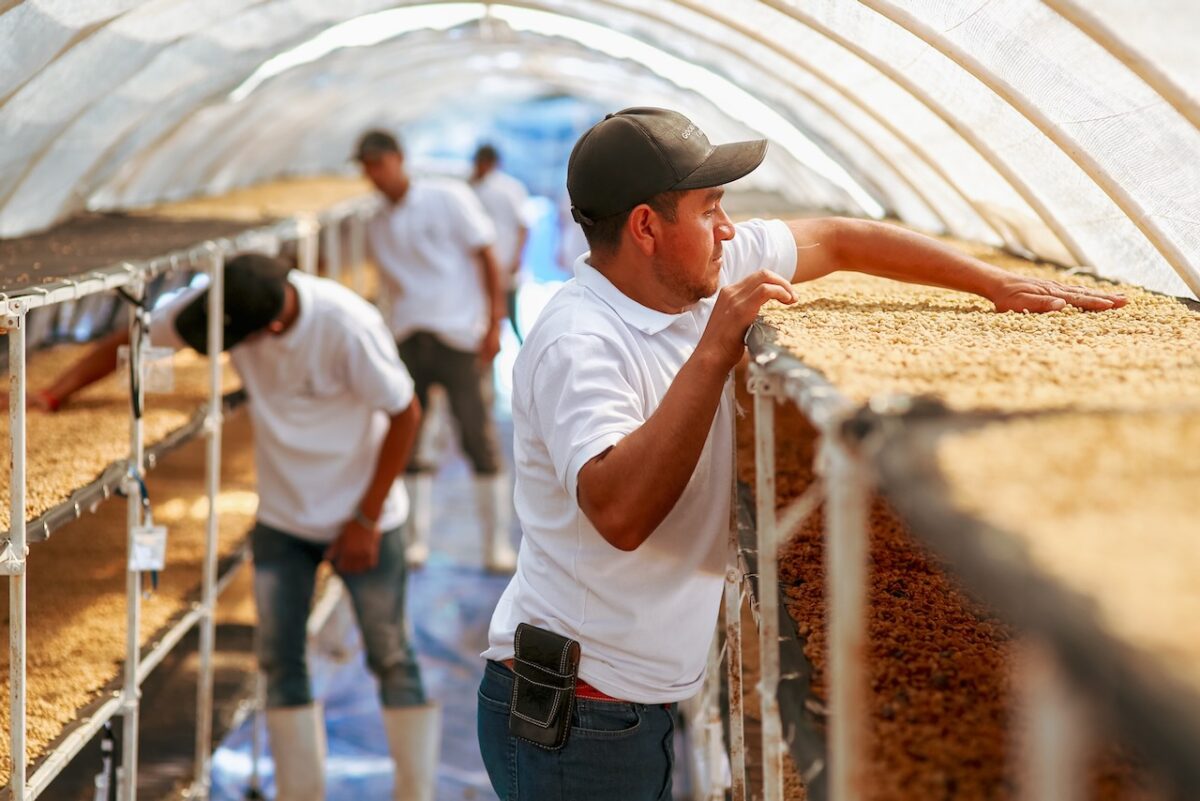
In 2013, Carlos brought a group of 13 Japanese business people to Guatemala, which ultimately imparted a new mission to his life. He took the group on a tour of one of the country’s highest-end coffee farms and asked staff at the farm about their working conditions. It turned out that they only made around the same money as other poor farmers did.
As Carlos searched for a real solution to the problem, he arrived at the idea of bicycle depulpers. After making many prototypes, he finally started producing his first crops in 2017. His project was featured by the media at home and abroad, which set off a stream of queries from farmers wishing to join his group. Out of all coffee regions, Carlos decided to focus his operations in New Oriente precisely because it was a lesser-known area with a large population of the poor, but home to high quality coffee.
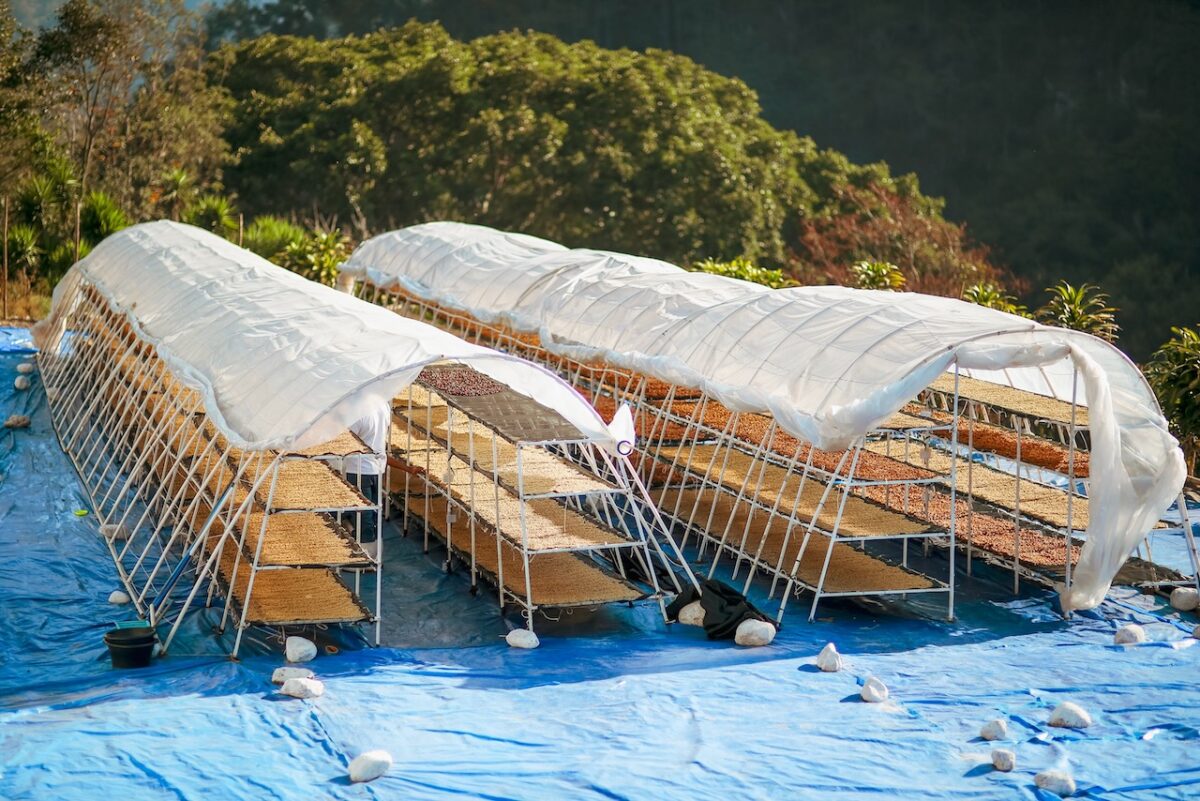
To showcase the efforts of the coffee farmers that joined his project and dignify their work, Carlos hosted Guatemala’s first coffee auction where single cups of coffee made with bicycles went up for bidding. The outcome far exceeded his expectations. One cup of coffee sold for around 746 US dollars, the highest of all. Other coffees also fetched a price that’s unimaginable in ordinary trade, ranging from about 440 to over 500 dollars. The money went to the winning farms and their coffee pickers to make them feel good and proud of their success, which ultimately was the whole purpose Carlos had in his mind from the beginning – changing people’s mindset was key to making the project work. The result clearly ignited a renewed passion among farmers.
“People learned in media reports about what we did and realized that I was genuinely trying to help farmers. They saw me as someone who was working for needy farmers in a revolution to tackle a structural problem where wealth is concentrated in the hands of large, highly capitalized farms.”
After overcoming numerous hardships, Carlos succeeded in exporting coffee to Japan for the first time in 2019.

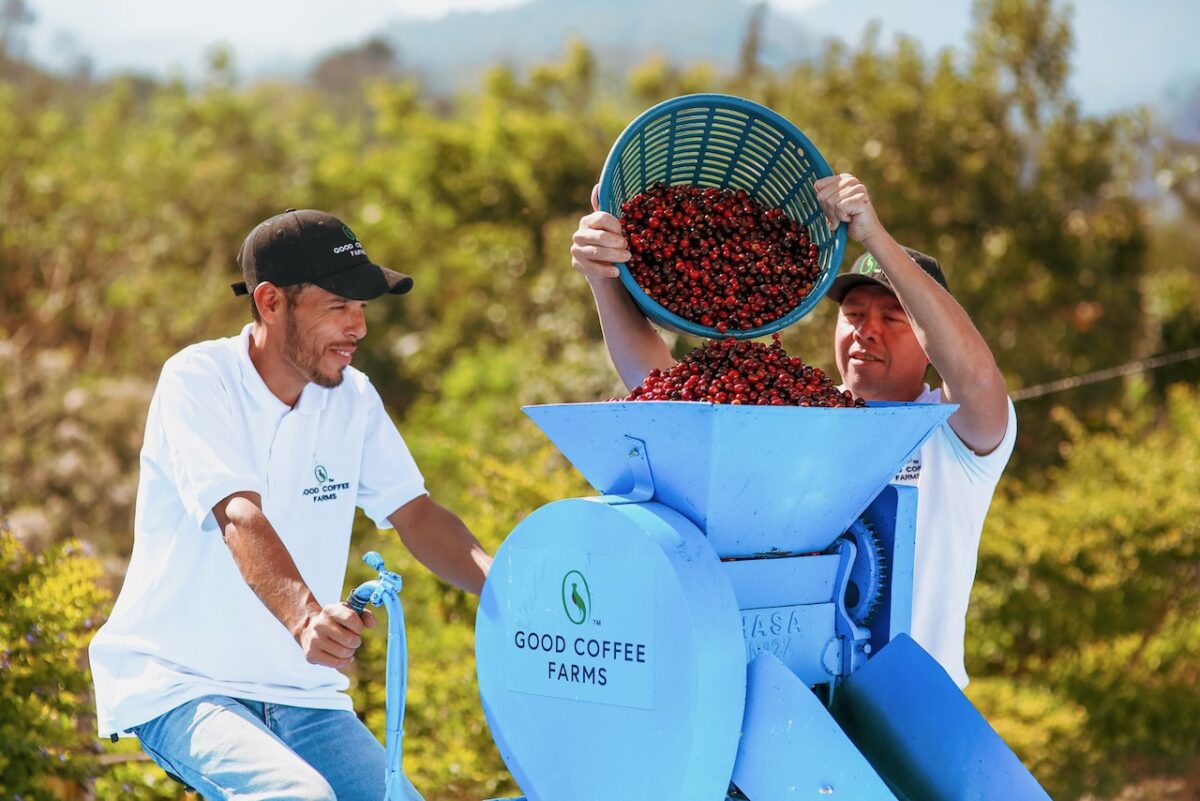
‘Japan changed me’
With each bicycle depulper, GOOD COFFEE FARMS can produce around 20 tons of coffee in a four-month season. The key to maintaining quality is a Japanese style, Carlos says. He introduced Japanese ways, from the greenhouses where processed green coffee is dried to the immaculately white uniform to the chorei daily pep rally in the morning.
“We’ve been doing things this way for about five years, since Day 1 to this day. We are making improvements day after day. Once you bring discipline into an organization and make sure its members work on time and comply with rules, they will develop a sense of responsibility. That will nurture cohesion as a team.
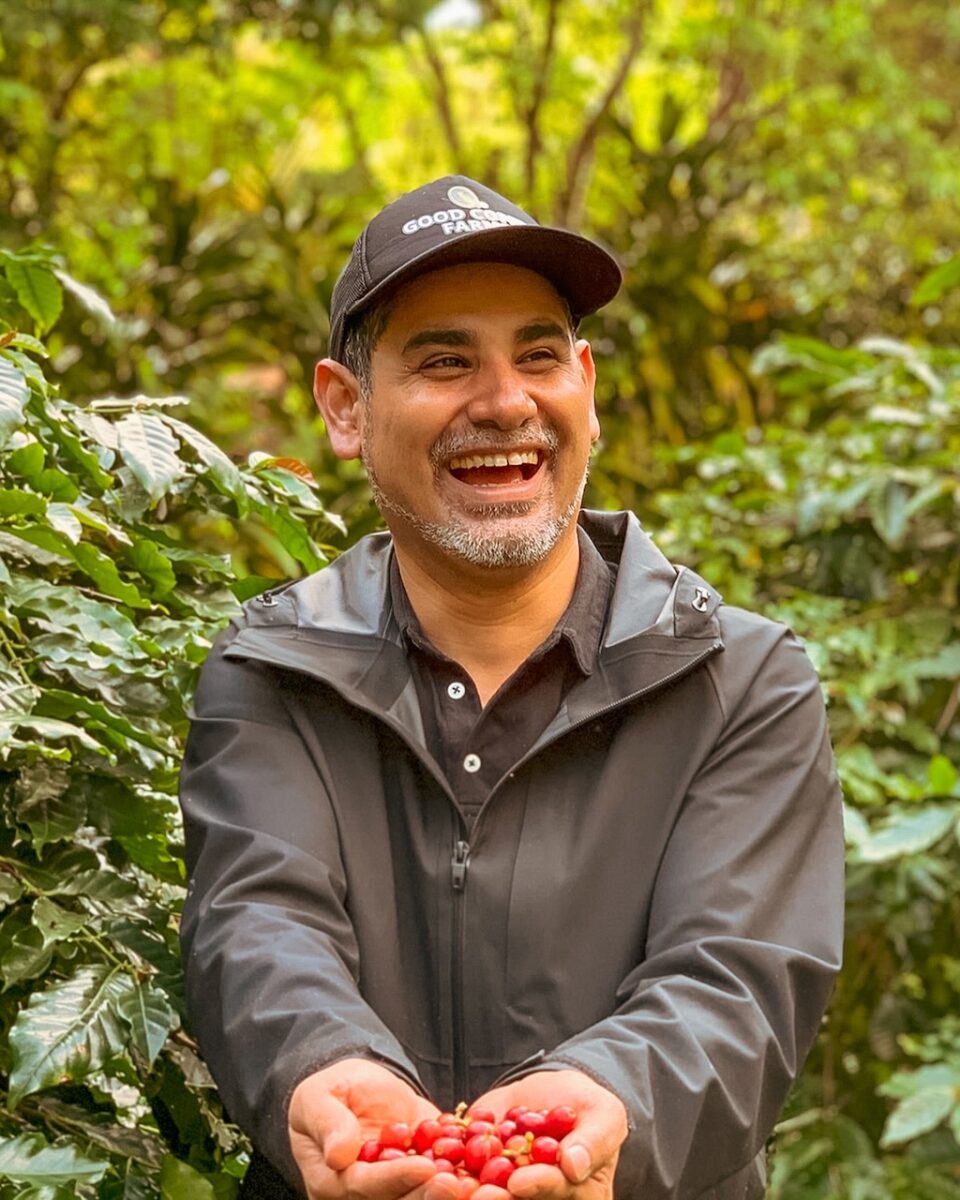
As someone from Guatemalan culture, I feel Japanese people are well-disciplined and hard-working. But at the same time, it seems to keep them from enjoying life, especially time with their families. That said, I’m still as surprised and impressed with their respect for each other and efforts to keep this society beautiful as I was more than 20 years ago.”
Still, overcoming cultural differences must not have been easy. We asked Carlos if he had any difficulty getting his team to embrace Japanese-style management.
“That’s what shocks people who know Guatemala’s coffee industry,” Carlos says. “The fact that I also went through poverty in my childhood made me close to the farmers. They see me as one of them, and believe in me when I teach them secrets to success. I was also lucky enough to have experience of having meals with Guatemala’s Presidents, Vice Presidents and ambassadors. So I have that strength as someone who has seen both sides of the world.
As the saying goes, ‘If life gives you a lemon, make a lemonade with it.’ I often try to cheer up the farmers, with my favorite phrase widely used in Japan, “Gambarimasho,” which I translate to them, ‘We have to do our best with what we have. We have coffee. So let’s do our best with coffee.’
I learned many things after coming to Japan. I’ve been able to change the lives of Guatemalans through coffee. Going forward, I want to expand my activity into Africa and Asia as well so that we can make coffee sustainable for everyone and change the world with coffee.”

During the interview, Carlos said with a beaming face, “I have good stories and bad stories. Let’s start with bad ones so we can end with a smile,” as if to give us a glimpse into his life. Having found hope in the beautiful country of Japan, Carlos genuinely believes that a chance to change the world is within his grasp.








